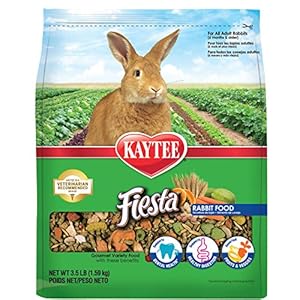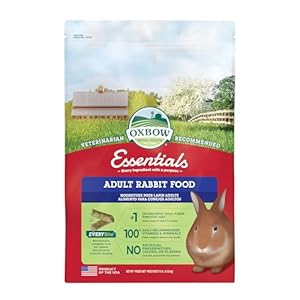
When Hurricane Helene ripped via North Carolina this September, Nicole DelCogliano sheltered together with her two daughters in Asheville, whereas her husband rode out the storm alone on their 16-acre natural vegetable farm, Green Toe Ground, in close by Yancey County.
After the storm subsided, DelCogliano fretted for hours till lastly a textual content got here via from an unknown quantity: “Farm flooded,” her husband, Gaelan Corozine, wrote. “I’m secure. Love you.” The following day, Corozine—who drove over 50 miles of washed-out roads to reunite together with his household—informed them that every thing was gone.

Inexperienced Toe Floor farm in Yancey County, North Carolina, after Hurricane Helene. (Picture courtesy of Inexperienced Toe Floor)
“We had been all hugging and sobbing collectively,” DelCogliano later recalled, her voice quavering.
Street closures blocked their return to the farm, so the household hiked over hills and hitched rides. Arriving there felt like seeing the aftermath of an earthquake, DelCogliano stated. “The entire panorama was completely different, bushes in all places . . . barn rubble in all places, our van on the aspect of the highway and the tunnels a large number of plastic and metallic.”
Inexperienced Toe Floor Farm is nestled right into a bend of the South Toe River, which crested at 30 toes above its regular top throughout Helene, inundating the farm. When the river ebbed from their fields, it took all their crops, scoured the topsoil from one subject, and left sand deposits in two others. The storm destroyed their 4 excessive tunnels, two utility buildings, and barn.
It swept away the potatoes, winter squash, and dried flowers for wreath-making, saved within the barn, and their 20-year-old horse, Star Darling, which they discovered wrapped in barbed wire and badly injured. Their house, which is about again from the river, was spared, although many neighbors weren’t so fortunate, DelCogliano stated.
DelCogliano estimates they misplaced 30 p.c of their annual income as a result of the farm was totally planted. The infrastructure will value $150,000 to interchange, and tree elimination and land grading will add additional prices. All informed, the storm will value the household roughly $300,000.
Inexperienced Toe Floor is considered one of many small, diversified farms serving native markets in western North Carolina that was devastated by Hurricane Helene. The complete extent of regional agricultural damages is unknown, however “many [farms] have had 50 to one hundred pc of their crops worn out, infrastructure destroyed, and many topsoil loss and soil contamination from the flooding,” stated Aaron Johnson, co-director of coverage on the Rural Development Basis Worldwide-USA (RAFI). Farmers who didn’t lose every thing are struggling to search out markets for crops that had been spared.


“Each farm in our community will likely be impacted by the storm, both by direct harm or via lack of market retailers,” stated Sarah Hart, communications coordinator at Appalachian Sustainable Agriculture Project (ASAP), a membership group with 900 farms and 400 meals companies.
A Restricted Federal Security Web
Within the storm’s fast aftermath, neighbors supplied DelCogliano a lifeline. “Folks got here collectively to clear the roads, deliver out chainsaws . . . assist one another navigate primary meals and water,” she stated. “The one factor we had was one another.”
Vermont farmers misplaced $44 million as a consequence of excessive climate in 2023, however obtained solely $1.5 million in USDA reduction funds.
Over the brief time period, western North Carolina’s tight-knit meals and farming neighborhood helps farmers get better. RAFI, ASAP, and different teams are providing small grants and serving to join farmers to markets for merchandise not destroyed by the flood, together with relief organizations.
Different organizations are elevating cash to pay farmers who’ve been donating merchandise to reduction teams. Wendy Burgh, co-owner of Dry Ridge Farm, a small poultry and livestock operation in Mars Hill, North Carolina, donated $4,000 value of eggs the primary week after the storm and was later repaid by Farm Connection. “Getting paid was a sport changer, each emotionally and for the monetary stability of the farm,” she stated.
Over the long run, nevertheless, North Carolina farmers face a restricted security internet to assist them recoup losses and rebuild their operations. Charitable help can solely go to this point. Some state help is obtainable for farmers, however the bulk of catastrophe help comes from the U.S. Division of Agriculture (USDA)—the Federal Emergency Administration Company (FEMA) covers private losses solely.
But there are various obstacles to acquiring USDA reduction, together with onerous paperwork, low payouts, protection exclusions, and a scarcity of workers. Additionally, a few of the company’s emergency reduction funds rely on advert hoc congressional approval, which suggests funds can arrive years after a catastrophe.
What’s extra, USDA’s federal crop insurance coverage, commodity assist, and catastrophe reduction packages had been designed for, and largely profit, large commodity-crop growers. “Most farmers in the USA are small or mid-sized household farmers, however these are the producers which might be left behind from the USDA packages which might be purported to assist in the aftermath of catastrophe,” stated Billy Hackett, a coverage specialist on the Nationwide Sustainable Agriculture Coalition (NSAC) and creator of the report “Unsustainable: State of the Farm Safety Net.”
Navigating USDA’s Reduction Applications
It’s nonetheless early days for USDA’s response to North Carolina’s catastrophe. The expertise of Vermont farmers after epic flooding in 2023 and 2024, nevertheless, gives a window into the shortcomings of a federal catastrophe reduction system which may be additional weakened below a second Trump administration. Vermont farmers misplaced $44 million as a consequence of excessive climate in 2023, however obtained solely $1.5 million in USDA reduction funds, in keeping with the Vermont Agricultural Restoration Activity Drive. What’s extra, solely 30 p.c of the state’s 6,800 farms carry crop insurance coverage.

Ansel Ploog, co-owner of Flywheel Farm in Woodbury, Vermont, standing on the fringe of the creek that swelled in 2023, taking the entire farm’s crops. (Picture credit score: Meg Wilcox)
For small farmers within the wake of catastrophe, getting USDA reduction might be daunting—particularly after they’re dealing with traumatic loss. Trauma can result in cognitive impairment, lack of focus, and issue with drawback fixing and even simply studying advanced varieties, famous Ansel Ploog, co-owner of Flywheel Farm in Woodbury, Vermont, which flooded in 2023. Ploog stated she was too exhausted by the paperwork necessities, which had been laborious to translate to her two-acre farm, and hardship in her neighborhood, to use for reduction.
Trending Merchandise










